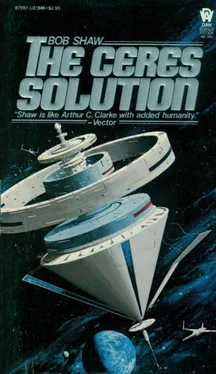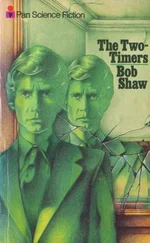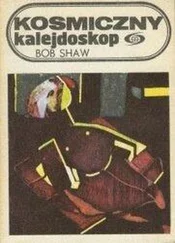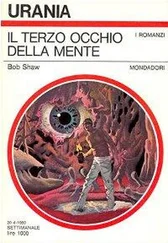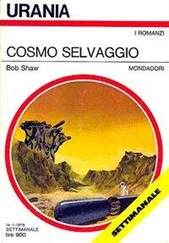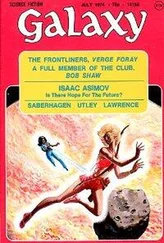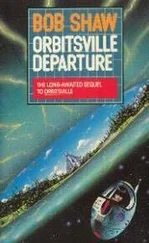If he had guessed in advance that she would remain loyal to Vekrynn he might have decided to take advantage of her inexperience, to give her enough of a jolt to send her scurrying to Station 23 by way of the hidden node. It was, now that she thought about it, quite possible that Lorrest was positioned nearby in the darkness outside the apartment, waiting for her to react according to his plan. And if that were the case, she would be better to do nothing out of the ordinary for at least a couple of days and use the time to devise a method of getting to Carsewell without being followed.
A new decision made, Gretana unpacked the overnight bag. With the need for action no longer present, she began to feel a deep weariness—a reaction to the prolonged tensions of the day—and her thoughts turned to the coffee which was percolating in the kitchen. Coffee with just a dash of brandy seemed highly desirable at that moment, no more than she had earned. She put the bag into a closet and, on impulse, picked up the lightweight television set and carried it with her into the kitchen.
Sedated though he was, the descent through the atmosphere and the landing at the Cape had terrified Hargate.
His sojourn in space had lasted only a matter of months, but that had been enough time for him to become acclimatised to its calmness, to an environment in which all movements were characterised by deliberation, smoothness and silence. In contrast, the final stage of his return to Earth had been a period of confusion, unbearable noise levels and wild buffeting from a dark grey atmosphere that appeared to be entirely composed of clouds, rain and hail. The landing at KSC had been so rough that Hargate had been positive the ship would be hauled away for repair, and yet he had heard it take off again barely two hours later, while he was still waiting to be processed at the emergency reception centre. Earth had become an alien and hostile place, peopled by cold-eyed giants who resented his presence, where the very weight of the air threatened to stop his breathing.
And the threat, he quickly discovered, was no figment of his imagination. He was waiting in line with about twenty other disabled refugees from Aristotle—some of them also in wheelchairs—when he began to sweat profusely and something like a massive cannonball seemed to form inside his chest. It was hard, uncompromising and real, leaving no room within his ribcage for the functioning of vital organs. His lungs fluttered against it, but were easily displaced; his heart strove to beat faster, but the warmth and life were being drawn out of it and into the metallic heat sink.
A crushing pain encircled his thorax.
He glanced around the makeshift reception centre—at the concrete floor, steel-trussed walls and unadorned windows with their sections of distant flat horizon—and felt an overriding panic at the notion that this, this, could be the last scene he would ever see.
“Pardon me,” he said to the wheat-haired woman who was seated on a bench beside him. “Can you help me, please? I think I’m having a…”
“Excuse me,” the woman said, smiling abstractedly as she stood up and walked away.
“You don’t understand,” Hargate called after her, but stress and the increased weakness of his palate smothered the words in a nasal honking which even to his own ear sounded ludicrous. “You great bitch,” he whispered and lapsed into silence as an agonising pins-and-needles sensation swept from his feet up to his thighs, adding to the burden of fear, making it intolerable and at the same time providing him with a completely novel idea.
Why not die? he thought. Everything’s screwed up now, good and proper, so why don’t you just compose yourself and get ready and ride the big wave that’s going to get you to hell out of this mess?
He took stock of his feelings and found he had not been indulging in private mock-heroics—dying seemed a perfectly good, logical and justifiable response to his set of problems. He subsided in his chair, relaxing, yielding.
I’m ready now—ready as I’ll ever be.
There was a moment of something like peace, then the planetoid of iron inside his chest began to dwindle and the tide of pain slowly ebbed away from his legs. Hargate lay still, almost disappointed, and experimented with his breathing, taking longer and deeper draughts of air as the internal crisis passed. His surroundings reassembled themselves in his consciousness, resuming their former solidity, and the sounds within the hangar-like building grew louder as though a volume control was being turned up.
He saw that the wheat-haired woman was returning to her seat with a cup of coffee, appraising him from beneath lowered eyelids as she drew near. Reaching for the cup with both hands, he gave her his most dreadful one-sided grin and was rewarded by the way in which she did an abrupt left wheel and walked to another part of the line.
Got you , he thought vindictively. That’s for not loving thy neighbour .
Later, when a harassed young medic, a Doctor Costick, asked him if he had experienced any ill effects from the space journey or the return to full gravity, he divulged nothing about the episode. His motives, he realised, were only partly that he had no wish to be hospitalised—the main consideration was that he no longer cared all that much whether he lived or died.
He had a natural preference for staying alive, but not if it meant—as he had done for as long as he could remember—bowing and scraping to the cloaked figure with the scythe, kissing skeletal feet. His stay on Aristotle, his holiday in the sky, had given him some idea of what a normal existence would be like, and he could see little reward in what now lay ahead. First prize , he thought, recalling and modifying an old joke, one more year of Denny Hargate’s old life; second prize—two more years of Denny Hargate’s old life…
“I’m glad you’re okay,” Costick said. “We haven’t much in the way of specialist facilities around here. Do you feel fit enough to travel back to…ah…Carsewell right away?”
“I can make it, but there isn’t much point—I gave up my apartment there when I signed on for Aristotle.” Hargate spoke comfortably, assigning all responsibility for his affairs to the NASA man.
“I see.” The medic unhappily inspected a document. “How about relatives or friends?”
“What are those things?”
The pattern of furrows on Costick’s brow deepened. “I see you have always attended the Dutchess County neurology clinic in Poughkeepsie. We could probably find you some accommodation near there. How would that suit you?”
“I’m easy.” Talk of a new permanent home on Earth disturbed Hargate, making him realise he had not fully accepted the situation with regard to the space colony. The story which had reached him was that a maintenance engineer called Barren had gone berserk on the end-cap with a powerful cutting tool, and then had given himself up to the authorities. An artificial world was obviously vulnerable to sabotage, but Hargate was reluctant to concede that one man, in a few seconds of technological savagery, could negate what amounted to humanity’s last grand dream.
“On the other hand,” he said casually, “I quite like the climate here in Florida.”
Costick was not deceived. “I don’t think we’ll be troubling you any farther, Mr Hargate—as soon as Aristotle became unstable it became uninhabitable.”
“Yeah, but it can’t be all that hard to tack on a new mirror and steady the whole thing up again. Maybe in a month or two when they…”
“I believe it’s a question of cost,” Costick cut in, happy to show that his expertise was not confined to one specialist field. “Canada, France and Holland have already announced that they’re withdrawing from the consortium, and you know what that means—these days we couldn’t fly a kite without international funding.”
Читать дальше
